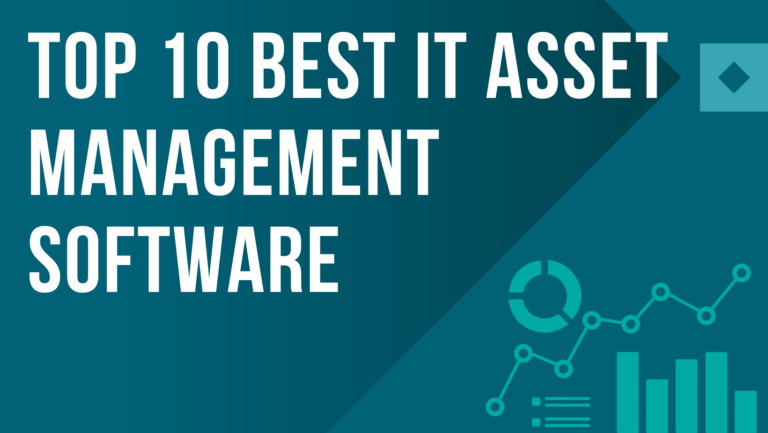From investors and economists to researchers and policymakers, many professionals rely on accurate and up-to-date economic data to navigate the complexities of international markets. This article highlights the top 10 websites that provide reliable global economic data, empowering users with insights to make informed choices.
Table of Contents
Summary
- World Bank Data portal provides diverse economic indicators, interactive visualizations, and downloadable datasets.
- IMF Data offers detailed economic and financial data. Its query tool enables customized data searches for analysis.
- World Trade Organization offers trade-related data, aiding in monitoring trends, assessing policies, and making informed trade strategies.
- The United Nations portal offers a wide array of global statistical data supporting the analysis and assessment of international development goals.
- OECD‘s data enables cross-country comparisons and supports policymakers with insights and policy recommendations.
- Econstat.com is a hub for economic data that aids researchers and analysts in comparing and understanding global trends.
- Eurostat’s data supports policy-making by providing accurate economic, social, and environmental statistics, fostering integration and informed decisions.
- econdata.net offers a broad spectrum of economic indicators. It aids decision-making across industries, supporting research and analysis.
- PrincipalGlobalIndicators.org facilitates cross-country economic comparisons and supports forecasting through indicators related to output, finance, and trade.
- With real-time updates and interactive tools, TradingEconomics.com is a data-rich platform that aids economists and investors in assessing economic conditions and predicting market movements.
World Bank Data
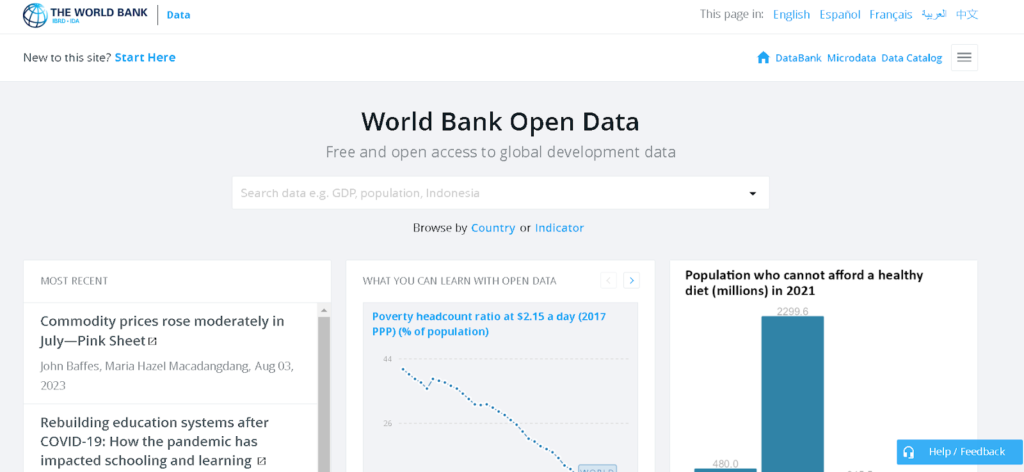
- The World Bank Data portal offers various economic indicators spanning multiple countries and years.
- The platform features interactive visualizations, easy-to-download datasets, and user-friendly tools for in-depth analysis.
- It has a diverse set of indicators. In addition, databases like world development indicators (WDI) cover the economy, health, education, and more.
- World Bank’s data is freely accessible to promote transparency.
- Data Tools like DataBank aid in analyzing and visualizing information.
- It allows you to track progress on global development goals like Sustainable development Goals.
IMF(International Monetary Fund) Data
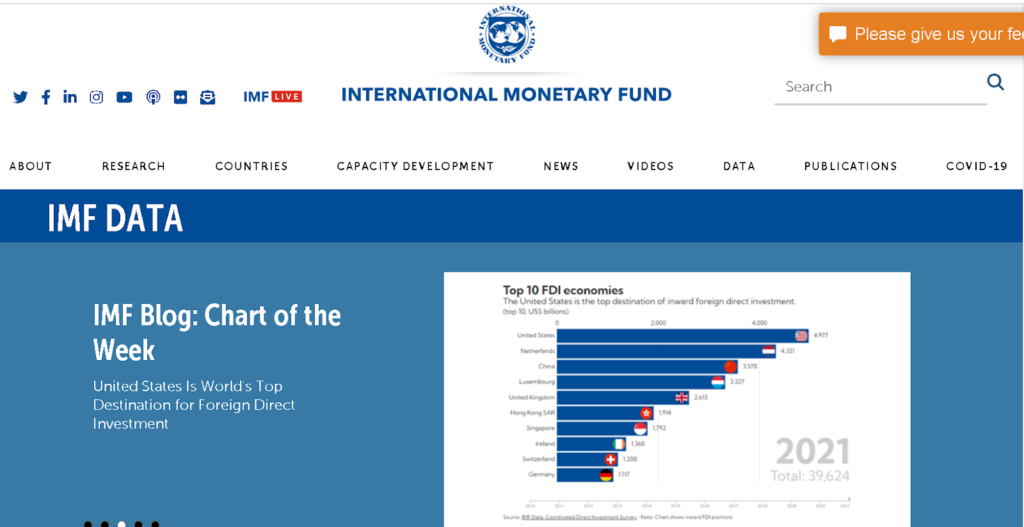
- The IMF fosters worldwide economic stability and growth by aiding member countries through financial support, policy counsel, and research.
- The IMF offers extensive economic and financial data via its “IMF Data” platform, covering global indicators, exchange rates, financial markets, government finance, and more.
- The IMF’s data platform offers access to statistical databases like the International Financial Statistics (IFS), covering global and domestic finance, and the World Economic Outlook (WEO) for economic forecasts and analysis.
- The platform’s robust query tool enables users to customize data searches according to their specific needs.
- Users can download datasets and generate charts and tables using the IMF Data platform facilitating research, analysis, and comparison of trends across countries.
World Trade Organisation
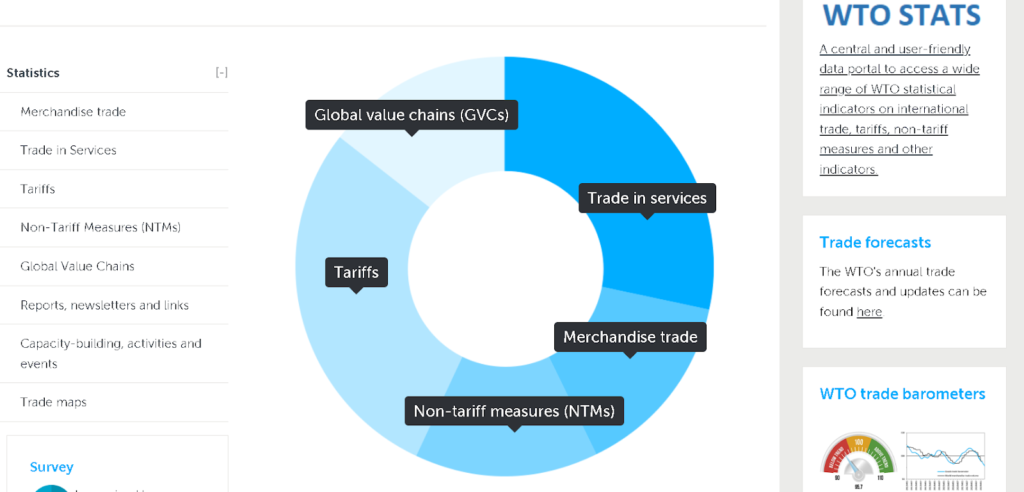
- This international organization deals with global trade rules and aims to ensure smooth and predictable trade flows between countries.
- WTO provides access to extensive trade-related data through its “Statistics” section about international trade, tariffs, trade agreements, and trade policy developments.
- With WTO’s data, you can monitor trade trends, assess the impact of trade policies, and make informed decisions about trade strategies and negotiations.
- The WTO trade tariff database offers data on import tariffs applied by member countries that help us understand trade costs and plan their market entry strategies.
- WTO conducts reviews of member countries’ trade policies, aiding global trade understanding. Moreover, the data from reviews improves insight into global trade dynamics.
Data.un.org
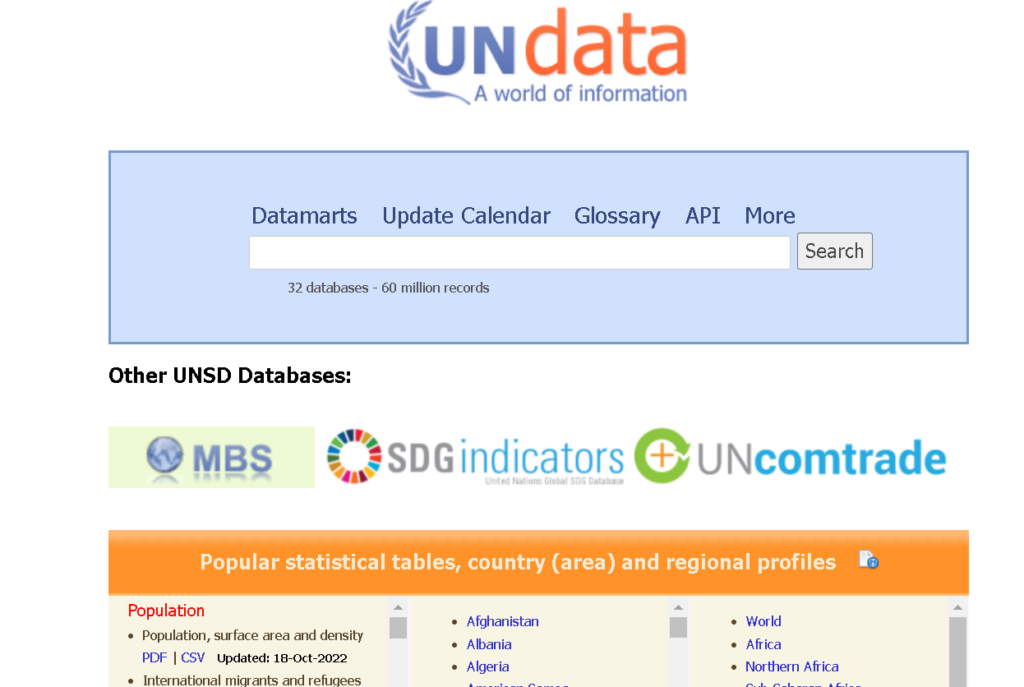
- The data.un.org website is the official United Nations portal that offers access to a wide range of global statistical data collected by various UN agencies.
- The portal covers diverse topics, including population, environment, health, education, gender, and more. It serves as a central repository for international development data.
- The portal’s data aids international development goals monitoring by providing data for analysis and assessment.
- data.un.org provides data visualization and exploration, allowing users to create custom charts, maps, and tables to understand global trends and patterns better.
- Users can compare data across countries and regions, facilitating insights into global disparities, trends, and challenges in various sectors.
- The portal partners with UN agencies and organizations to ensure accurate, current data for evidence-based decisions and policies.
OECD.org
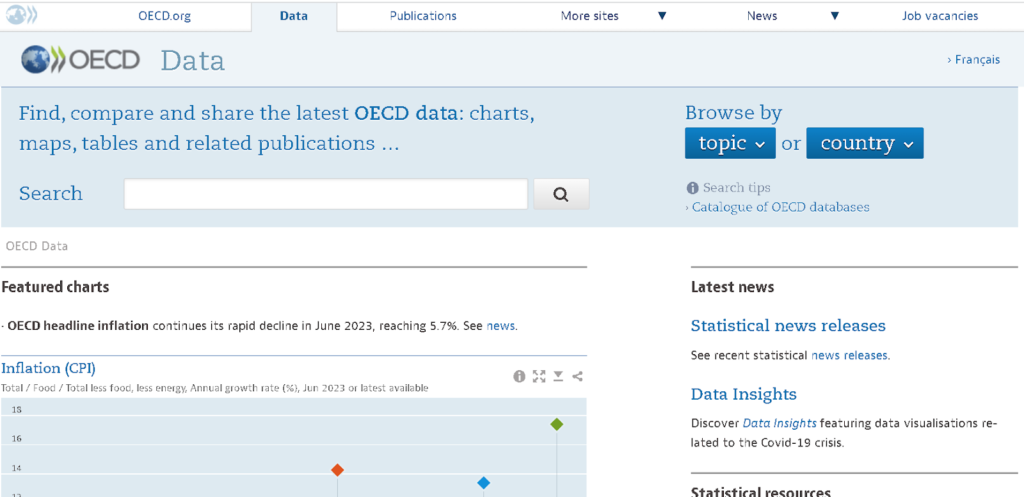
- Organization for Economic Cooperation and Development (OECD) aids economic growth, trade, and cooperation among member countries.
- OECD offers diverse economic, social, and environmental data via its “Data” section, covering GDP, employment, education, innovation, and ecological indicators.
- OECD data enables comparing economic and social performance among member countries, helping policymakers find best practices and areas for improvement.
- OECD’s data-driven reports offer policy recommendations to member countries, aiding challenge resolution and policy improvement.
- The OECD data and reports provide insights into specific countries’ economic and social situations, helping stakeholders understand their strengths, weaknesses, and opportunities.
Econstat
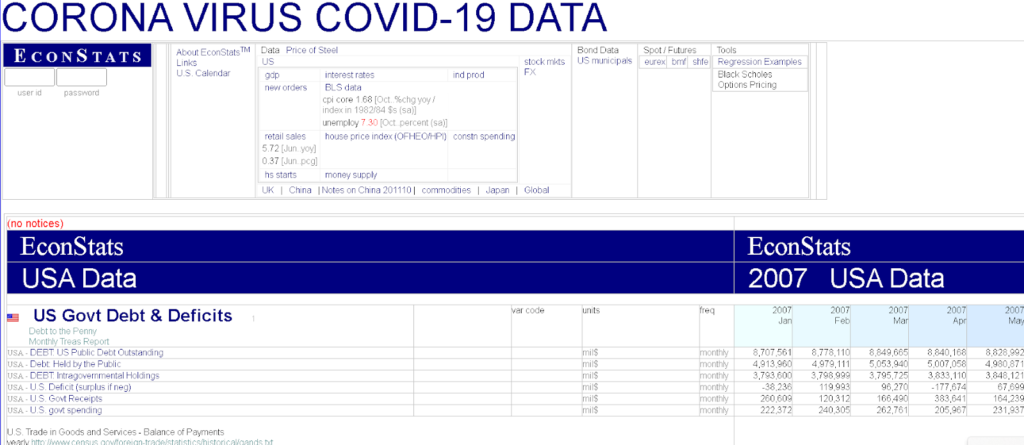
- econstat.com is a hub for various economic data from several sources, making it a comprehensive platform for accessing diverse economic statistics.
- The platform offers abundant global economic indicators, including crucial metrics like GDP growth rates, inflation rates, unemployment figures, etc.
- Researchers and analysts use it to compare economic data across different countries and periods, aiding in identifying trends and patterns.
- econstat.com supports in-depth analysis and research, enabling users to get insights into the dynamics of various economies.
Eurostat
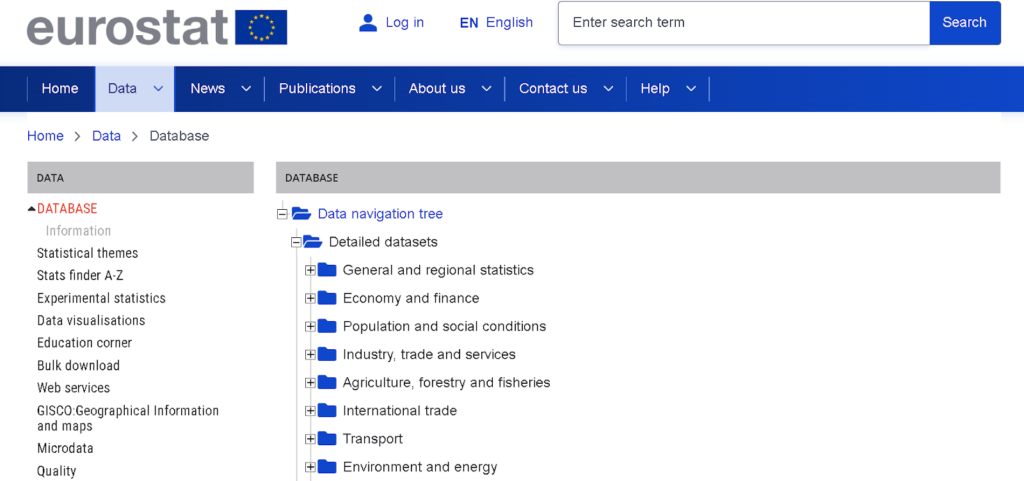
- The statistical office of the European Union is Eurostat, responsible for compiling and providing accurate and comparable data across EU member states.
- The platform covers many economic, social, and environmental data, offering insights into GDP, employment, trade, environment, and demographics.
- Policymakers rely on Eurostat data to make informed decisions, develop strategies, and assess policies’ effectiveness within the EU context.
- The platform offers free access to a vast amount of statistical information,
- By providing standardized and reliable data across member states, Eurostat contributes to integrating and harmonizing economic and social policies within the EU.
Econdata.net
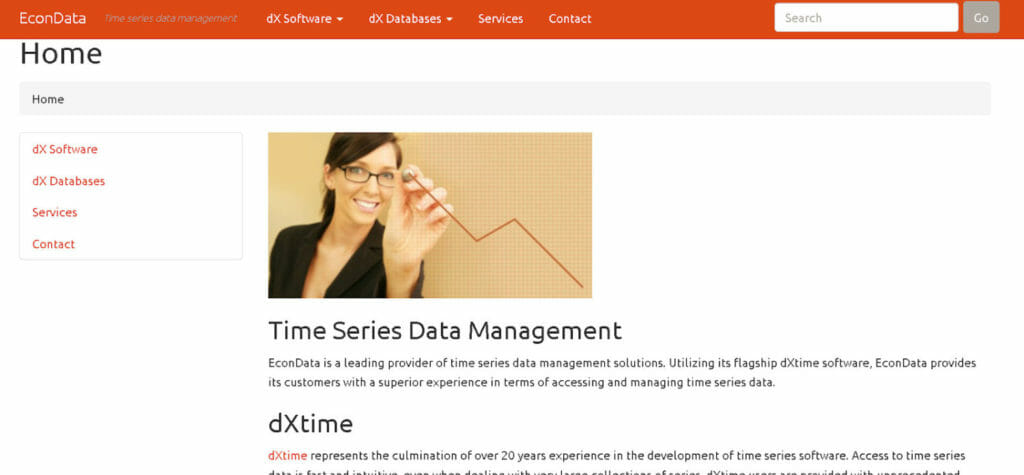
- econdata.net serves as an amazing resource for economic data, offering a broad spectrum of indicators related to macroeconomics, finance, and various sectors.
- The platform provides easy access to economic data that professionals across industries can use for research, analysis, and decision-making.
- econdata.net covers a variety of economic dimensions, including income distribution, employment figures, consumer sentiment, production indices, and more.
- The platform’s data insights to make strategic decisions, assess market trends, and plan operations effectively.
- Researchers and academics can leverage econdata.net to analyze economic trends, develop models, and contribute to economic literature.
PrincipalGlobalIndicators.org
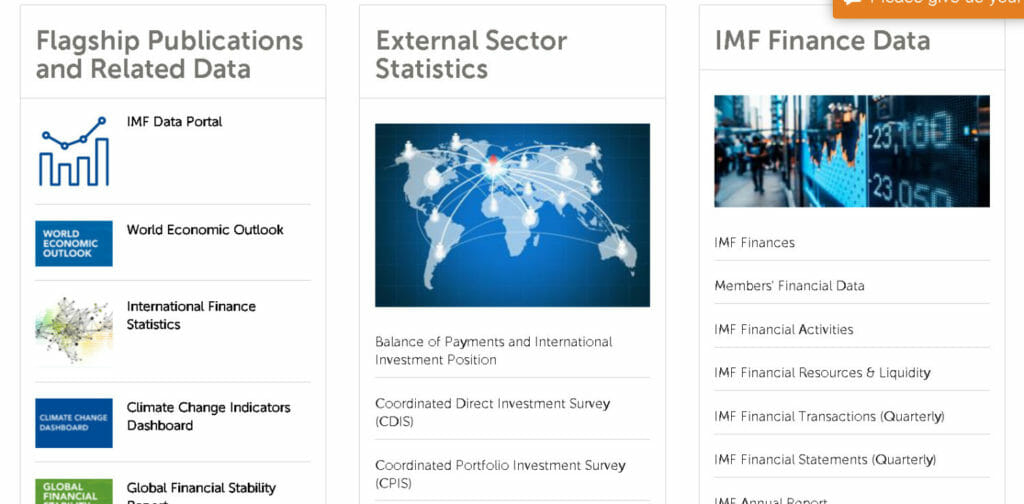
- PrincipalGlobalIndicators.org is a repository of crucial economic metrics that provide insights into the performance of economies worldwide.
- The platform enables users to perform cross-country comparisons, allowing for a clear understanding of economic trends and variations.
- By offering indicators related to output, prices, finance, and trade, the platform facilitates monitoring global economic trends.
- The availability of up-to-date indicators supports economic analysis and forecasting, aiding in predicting potential shifts in global economic conditions.
- Researchers and analysts can use the platform to conduct in-depth economic analysis, draw insights, and contribute to the discourse on international economic trends.
TradingEconomics.com
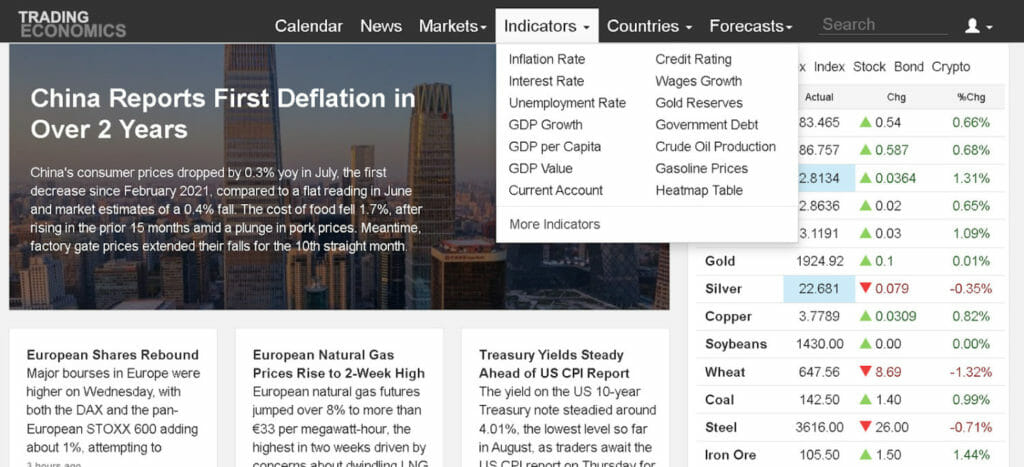
- TradingEconomics.com is a data-rich platform offering several economic indicators and forecasts from various countries.
- The platform covers diverse sectors, including inflation rates, trade balances, employment figures, and consumer sentiment, providing a holistic view of economies.
- TradingEconomics.com provides real-time updates for investors, analysts, and researchers who require current data for decision-making.
- The platform’s interactive charts and analysis tools enable users to visualize data trends and perform customized analyses according to their needs.
- Economists and investors can rely on TradingEconomics.com to assess economic conditions, predict market movements, and formulate investment strategies.
- The platform’s user-friendly interface ensures immediate access to economic data, enhancing users’ ability to respond swiftly to economic shifts and opportunities.
Conclusion
Access to reliable and up-to-date global economic data is essential for individuals and institutions seeking to understand the dynamics of the world economy. The websites mentioned in this article provide an array of economic indicators, forecasts, and historical data that can guide decision-making, inform research, and enhance market analysis.
Also read >> Top 10 High Quality Swing Indicators
Frequently Asked Questions
Q. Why do economists study the data of economic indicators?
Economists study economic indicators to comprehend economic trends, assess the health of economies, and predict potential shifts. This data-driven analysis informs policy decisions, aids in identifying risks and opportunities, and contributes to a deeper understanding of the complex interplay within national and global economies.
Q. What is the best definition of economic data?
Economic data refers to quantitative information and statistics that provide insights into various aspects of an economy’s performance, such as growth, employment, inflation, trade, and financial conditions. It helps economists, policymakers, businesses, and researchers analyze trends, make informed decisions, and understand the dynamics of economic systems.
Q. How to gather historical economic data?
Collect historical economic data from trusted sources like governments, international organizations, and central banks. Use online databases and archives, clean and organize the data, and maintain accuracy through cross-referencing. Regularly update the dataset. Properly managed historical economic data informs analysis, decision-making, and understanding of economic trends.



